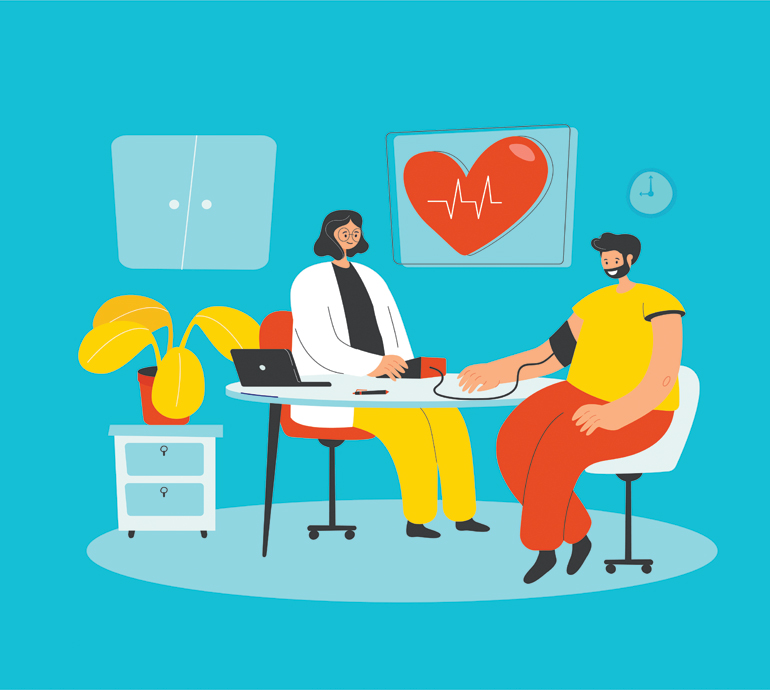
One of the biggest outcomes that came as a result of the COVID-19 pandemic is the revelation of the fragility and inequity prevalent in healthcare systems around the world.
Health equity is only achieved when everyone has a fair and just opportunity to attain their highest level of health, and the pandemic has unfortunately demonstrated how much the world at large fell short of that goal.
The World Economic Forum noted in an article published on its website that preexisting structural injustices have contributed to and perpetuated unequal health outcomes through race, ethnicity, and other sociodemographic characteristics prior to the pandemic and up to the present.
Therefore, to create a truly inclusive and resilient healthcare system, individuals, businesses, and governments should take note of and address the vulnerabilities revealed by the pandemic.
“As we sustainably manage the COVID-19 pandemic, there is a need to use the lessons from the pandemic response to steer universal healthcare implementation into the right direction. With all these, we see the value of our healthcare workers as the backbone of our healthcare system,” Dr. Maria Rosario Singh-Vergeire, officer-in-charge (OIC) of the Department of Health (DoH), said at her keynote speech at the 23rd Grand Scientific Symposium (GSS).
Sponsored by the University of the Philippines-Manila, UP College of Medicine, and the Postgraduate Institute of Medicine, the GSS gathered a diverse group of experts to zero in on the themes of building a resilient healthcare system, effective healthcare management, and adapting clinical practice during crisis in the Philippines.
Dr. Apolinario Ericson B. Berberabe, overall chairman of the GSS Organizing Committee, added, “One major lesson from a public health perspective is that it is important to remember and recognize these events as part of our history.”
“Because learning from these COVID experiences will give us the tools to analyze the problems we encountered and it will position us to see patterns that might otherwise be invisible in the present. And this will provide us a crucial perspective for understanding current and future problems,” he said.
The private sector has its own role in creating this future. Each company may help promote health equity by investing in its people, products, and communities. In doing so, the business is essentially ensuring their own sustainability as it is paving the way for a thriving economy.
There is substantial proof that health investment provides a high return on investment for businesses. As businesses begin to focus on health equity, they are also coming to terms with the fact that corporate social responsibility is becoming a more important factor in attracting investors, potential employees, and customers.
For instance, the mental well-being of employees, often neglected by the healthcare system, is a fundamental factor in the efficiency of a company.
This was the driving force behind the recent “Wellness Movement” launched by the DoH, with the support of the World Health Organization (WHO) and the Australian Government. The movement is an initiative that aims to support over 3,000 healthcare workers across the Philippines in improving their mental health and well-being.
“Workplaces can be places of both opportunity and risk for mental health. With a profession and vocation as demanding as saving lives and caring for people, healthcare workers have been at risk of tremendous and chronic stress even before the pandemic. This innovative work with the DoH and the Australian Government is a start to explore and implement practical and scalable ways to improve the wellness and resilience of the country’s healthcare workforce at the individual and organizational levels,” said Dr. Graham Harrison, officer-in-charge at the office of the WHO Representative to the Philippines.
The Wellness Movement is based on effective behavioral strategies to boost the health and happiness of healthcare professionals in the workplace and beyond. Incorporating health promotion tactics in the workplace is encouraged under the country’s Mental Health Act.
“Creating a mental health-positive culture in our workplaces is integral to the flourishing of not only our healthcare workers as they fulfill their role as healers, but also the cultivation of relationships among their families and friends, as they bring home healthy habits for mental health and wellness,” said DoH OIC-Undersecretary Dr. Beverly Lorraine Ho.
Leaders in the business world can pursue the same goals and promote health equity not only within their own companies, but also in the communities where they operate and the ecosystems in which those companies exist.
A diverse variety of companies can help address these problems since they each have their own set of resources, strengths, expertise, knowledge, and connections to the communities, economies, and ecosystems affected.
In the wake of COVID-19, both the public and private sectors have an obligation to move beyond “business as usual” by confronting the profound structural disparities of the pre-COVID era. Only by taking concerted action, measuring effects, and sharing discoveries and breakthroughs, can a nation create a more equitable and just society.
“As we continue to fulfill the promise of universal healthcare, step by step we will continue to gear ourselves up with the right arsenal for a stronger and more resilient healthcare system for every Juan and Juana,” Dr. Singh-Vergeire said. — Bjorn Biel M. Beltran
Striving for a resilient and equitable healthcare system
Source: Bantay Radio
0 Comments